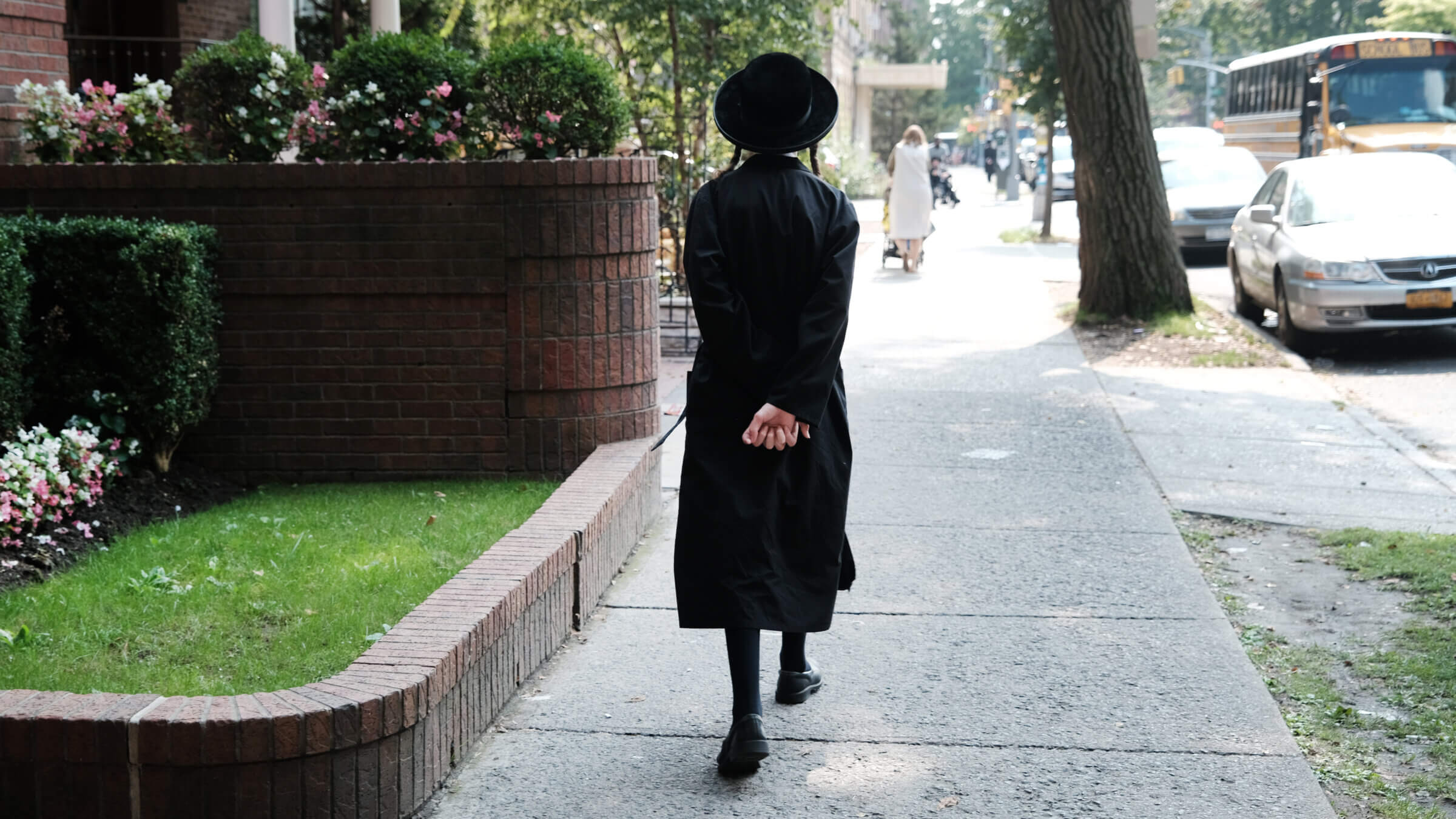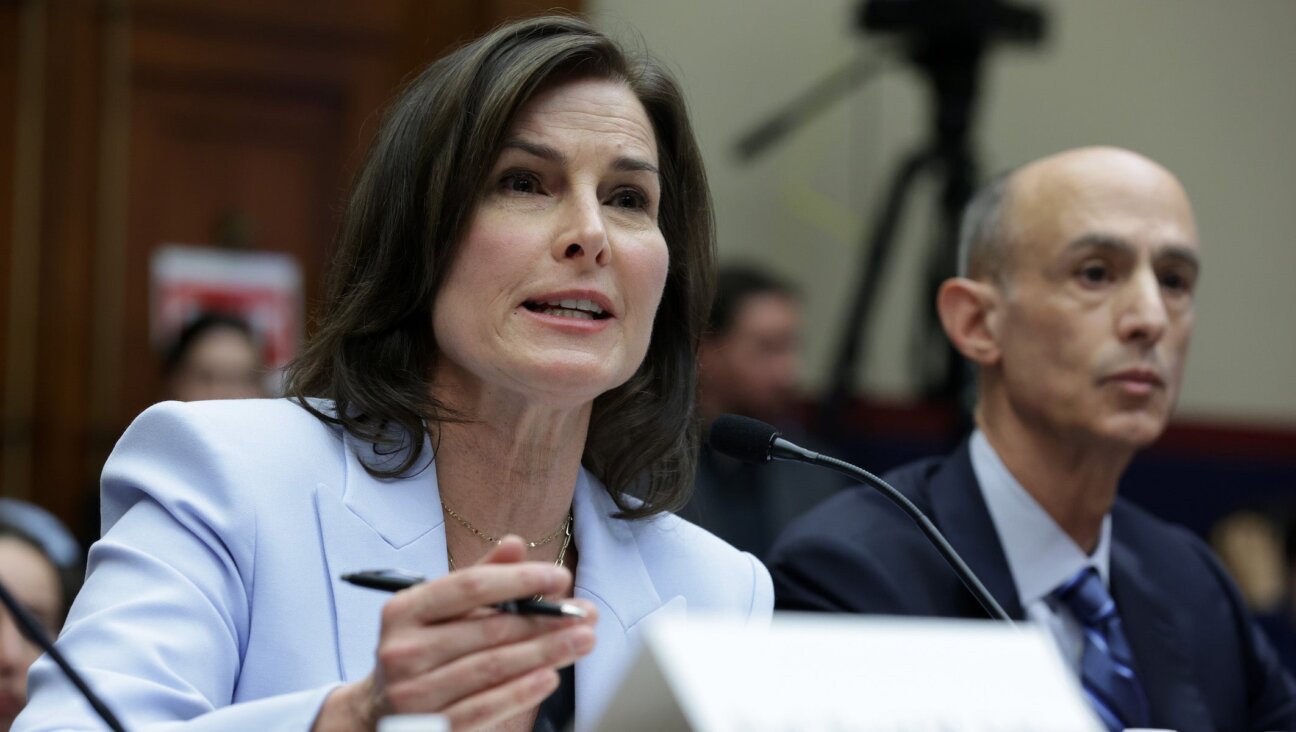Survey finds Orthodox Jews are concerned about issues of abuse in their community
The survey also found slightly more progressive views on women in the clergy and Israeli politics than in the past

An Orthodox Jewish boy walks down a street outside of a yeshiva school in Borough Park, Brooklyn, on Sept. 12, 2022. Photo by Spencer Platt/Getty Images
While Orthodox Jews largely find their lifestyle fulfilling, a growing number hold progressive stances on issues like women’s roles in the clergy and Israeli politics, according to a new poll. The survey also found deep concern about issues related to abuse in the community.
The survey was conducted by Nishma Research, a marketing research firm focused exclusively on the Orthodox community. The results are based on responses from 1,869 people who identify as Orthodox, including 591 people who identify as Haredi Jews. The survey shows a varied, diverse community with shifting priorities.
Respondents were divided into three categories: modern Orthodox, Chasidish and Yeshivish. Modern Orthodox was then further divided into three subcategories: liberal, centrist and more stringent. While both Chasidish and Yeshivish Jews are Haredi, or ultra-Orthodox, Chasidish Jews typically follow a certain rabbi and sect, along with Hasidic traditions such as distinctive clothing.
No margin of error or standard deviation was given for the survey.
The survey found that 82% of respondents believe that dealing with those who commit physical, mental or sexual abuse is an issue that the “community must address in the next decade. “ In a similar survey from 2017, only a quarter of those polled saw abuse as a priority.
With regard to women in the clergy, three-quarters of modern Orthodox respondents said women already hold positions of lay leadership in their synagogues, such as president or serving on the board of directors, a stark contrast to Chasidish (16%) and Yeshivish (21%) respondents. Modern Orthodox adherents have also shown a small move toward accepting women as members of the clergy: 38% said they strongly agree women should have the opportunity to serve in “clergy-related” positions, compared to 34% in 2017, while another 31% said they somewhat agree, a jump from 22%.
No polling data was available on Haredi Jews, where women serving as clergy is verboten.
There was a similar split between modern Orthodox and Haredi Jews on Israeli politics. While all segments showed strong emotional ties and considered themselves supporters of Israel, the controversial new government has cleaved the community. More modern Orthodox Jews said they were concerned about the government (41%) than were pleased with it (27%). But only 2% of Chasidish and 7% of Yeshivish Jews called themselves concerned. Modern Orthodox itself saw a wide range of opinions on Israel: 67% of those who identify as liberal were concerned, versus only 19% who said they lean to the right.
Across the board, the cost of Jewish education was a major concern, with 82% of all respondents saying this is an issue that must be addressed.
Other topics that were seen as important across all strains of Orthodoxy were the cost of maintaining an Orthodox home, intermarriage and assimilation.
The increasingly progressive views on Israel and women’s roles don’t extend to other topics: Most Orthodox Jews still do not rate climate change highly as a priority, with only 13% saying it must be addressed.
Only 37% of respondents said Orthodox Judaism’s approach to LGBTQ issues is something that needs addressing.
The survey also depicted Orthodox Judaism as overwhelmingly in agreement on religious practices. There was near unanimity on keeping kosher and being shomer Shabbat. But it also showed how varied Orthodox practice can be. While the vast majority of Orthodox men said they wear a kippah, far more Chasidish and Yeshivish men put on tefillin and participated in minyan daily. Similarly, a discrepancy was seen between Haredi and modern Orthodox Jews on rituals like prayer after meals and hair coverings for women.
All sects showed a shift towards becoming more observant, with 38% of total respondents saying they’ve shifted towards more observance over the past decade. Only 14% said they were less observant than they were 10 years ago.





















